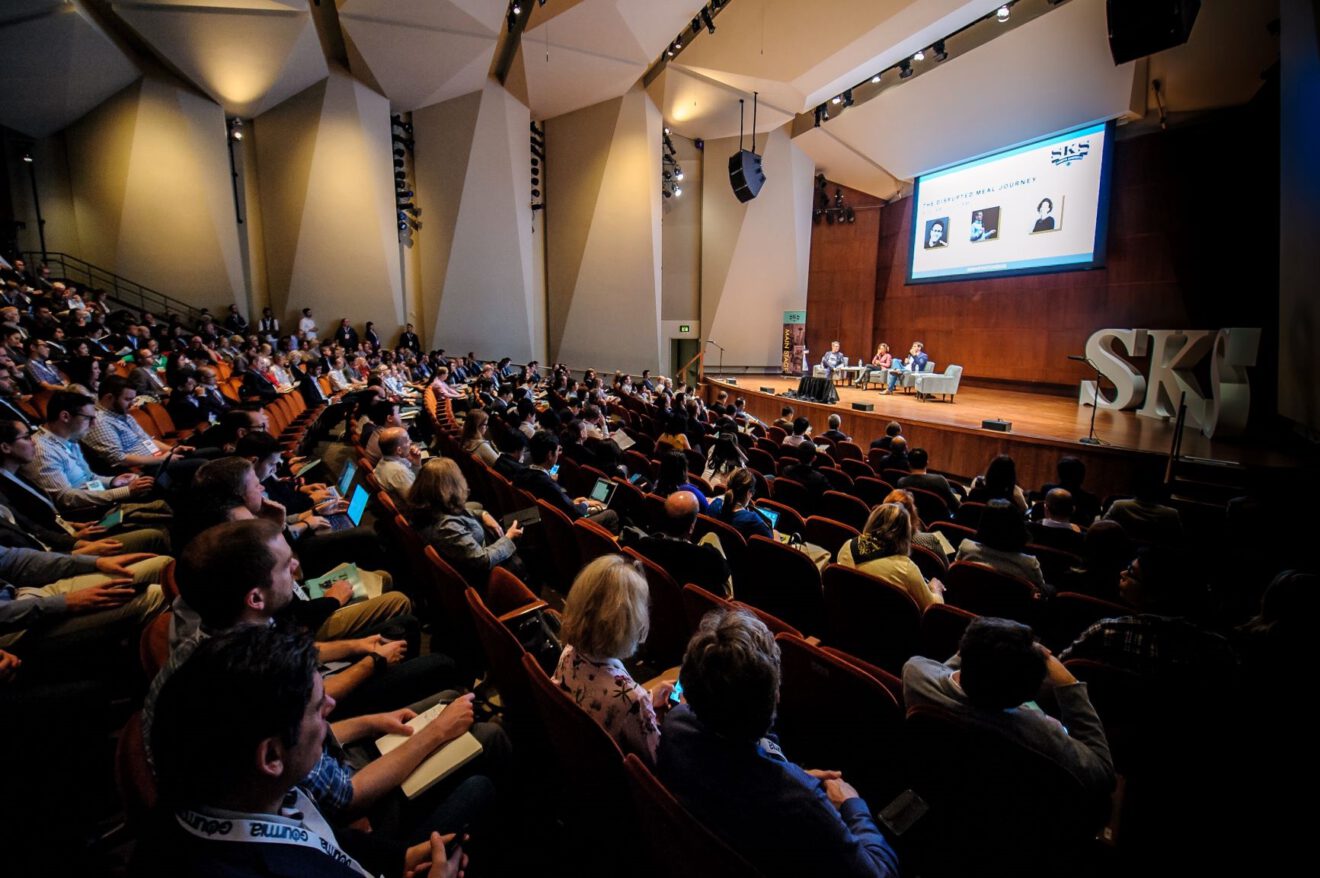These days, everyone is talking about the future of food, and with good reason. With population growth, climate change and technological innovations, the landscape today isn’t the same as it was yesterday and it won’t be the same tomorrow, and one person who has been following the change as it relates to technological innovations is Michael Wolf, founder of The Spoon and Smart Kitchen Summit, which was held in Seattle on Oct. 8-9.
“The last year has been a big one for the food tech industry,” Wolf said. “Investment is shifting from meal kits and delivery towards even more innovative cooking technologies, Big Food disruption, the personalization and convenience era of food options and greater transparency in the food system.”
Companies using technology to drive agricultural innovation, improvements in sustainability, data for making better decisions on how to make better decisions presented at SKS about the work being done in these spaces, and Wolf said he thinks that sector will continue to grow as a trend.
While SKS focuses on the future of cooking largely in consumer kitchens, what goes on in home kitchens easily flows over into every other facet of the food industry, whether it’s CPG, food retail or foodservice.
“The combination of changing demographics, new technologies and emerging business models is drastically impacting how we find, buy, cook and consume food,” Wolf said. “Millennials are both ordering food more than ever and embracing the idea of creating interesting food at home. Existing food and cooking tools in the home are becoming digitized and more intelligent. Artificial intelligence and other emerging technologies are being used to create highly personalized food in restaurants, retail and in the home.”
Technology’s effects on the food retail industry today are clear with grocery delivery now mainstream and frictionless retail rapidly expanding, Wolf said, and in the foodservice industry, operators are still trying to optimize processes from the front of house to the back.
“Food is still big business, but that business is evolving and the way that people cook, shop, dine and learn about food is all changing,” he said. “Technology is at the forefront of that change.”
Some of the biggest technology trends affecting the food industry today, according to Wolf, are the digitization of food from agriculture to cooking and serving food, the role that robotics and automation will play on shifting the labor around the food industry and a focus on AI and VR for a wide-range of applications in restaurants and foodservice.
When it comes to the potential connected devices in the kitchen might have on the industry and whether or not food retailers, food makers and foodservice operators understand it, Wolf said he thinks awareness has grown over the last few years.
“This used to be a fairly niche industry, but as big-box retailers, popular appliance and food brands, and startups alike all take notice and create new technologies and ways to access food and cooking,” he said. “CPG [companies] and retailers are experimenting with ways to stay ahead of the disruption, from investing in startups that fill gaps in their product lines to experimental retail models that take an omnichannel, everywhere approach to food offerings.”
The food industry should be conscientious of the need to deeply understand the “consumer journey and experience both inside and outside of the home [which] is crucial in creating technologies, products and services that play a meaningful role in their lives,” Wolf added.
The bottom line? Technology represents a disruptor and an opportunity in all facets of the food industry.
“From the minute food is created to the second it is put on a fork to eat, the meal journey is being disrupted,” Wolf said. “And this disruption represents a once-in-a-lifetime opportunity — and threat — for upstarts and incumbents across the food, retail, appliance and technology sectors to create a new foundation for food for the world’s 9 billion people over the next decade.”
SmartBrief is a media partner of the Smart Kitchen Summit.
__________________________________________________
If you enjoyed this article, sign up for Food Business News SmartBrief, GMA SmartBrief, National Restaurant Association SmartBrief and FMI dailyLead to get news like this in your inbox, or check out all of SmartBrief’s food and beverage newsletters, as we offer over 20 newsletters covering the industry from restaurants to food retail to food manufacturing.
